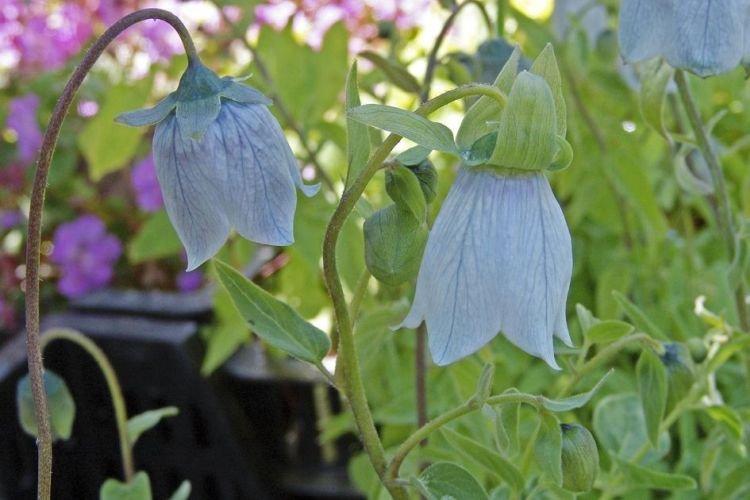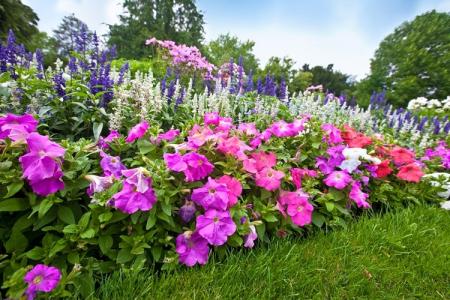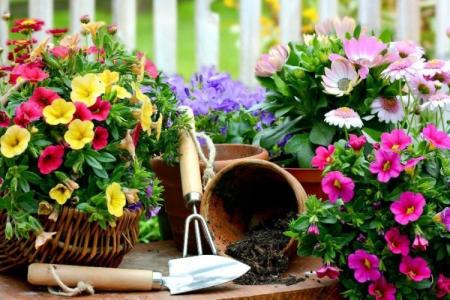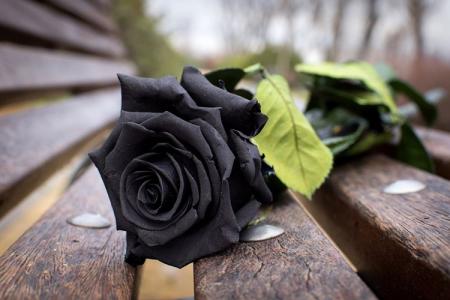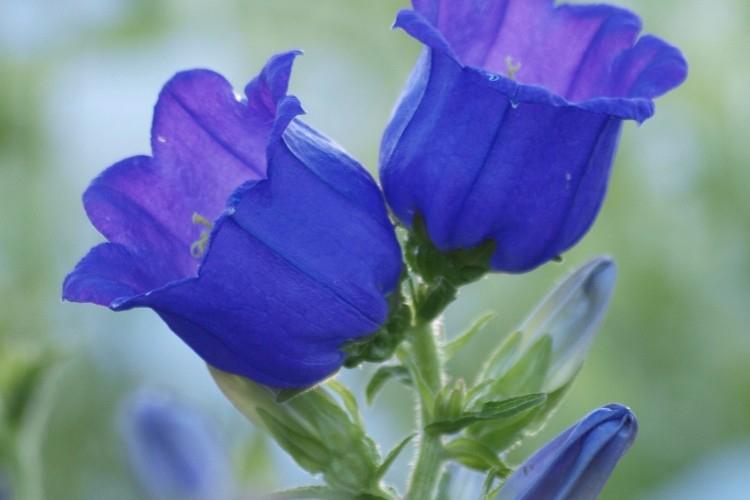
Often all flowers with a characteristic bud shape are called indiscriminately bells. They are very delicate, beautiful and look truly springy, regardless of the flowering time. This is an invaluable element of field bouquets and country flower beds. Here are 25 bell-like colors!
1. Adenophora
A perennial with thick shoots and rather large flowers still seems very light and airy. There are more than fifty varieties of adenophores, and almost all of them are valuable melliferous plants.
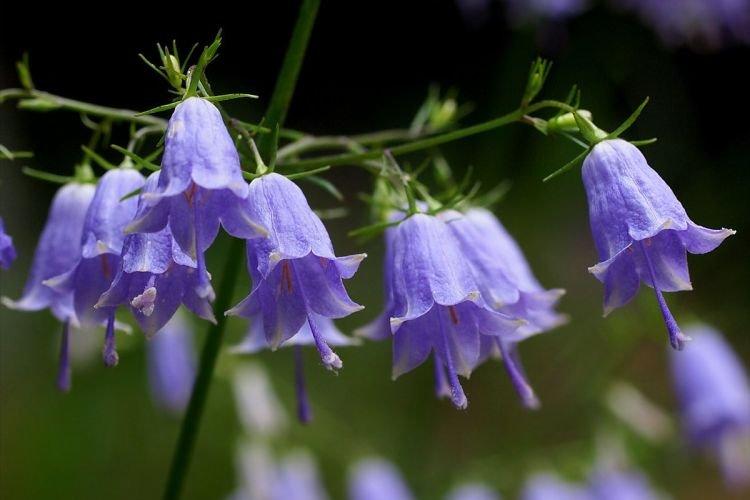
2. Lobelia
In our latitudes, low-growing branchy lobelia is often grown as an annual for flower beds. It rarely grows taller than 20 cm and is densely dotted with blue-violet flowers.
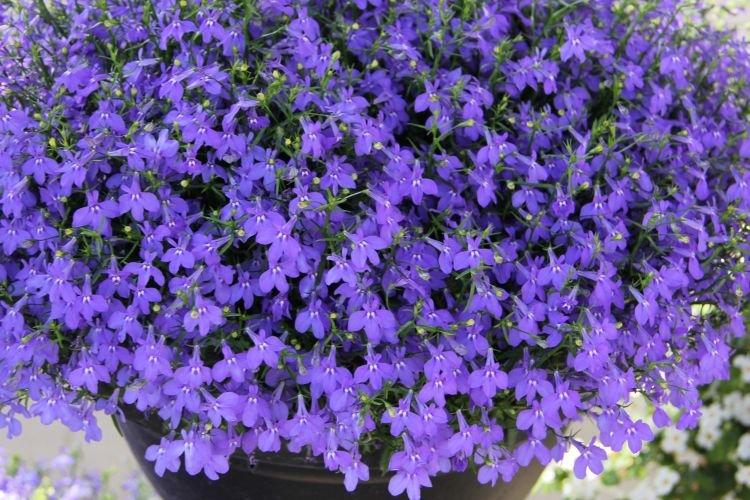
3. Godetia
Bright godetia pollen attracts attention with colorful buds of all shades of pink, red and purple. Blossoming bells are collected in volumetric inflorescences-brushes.
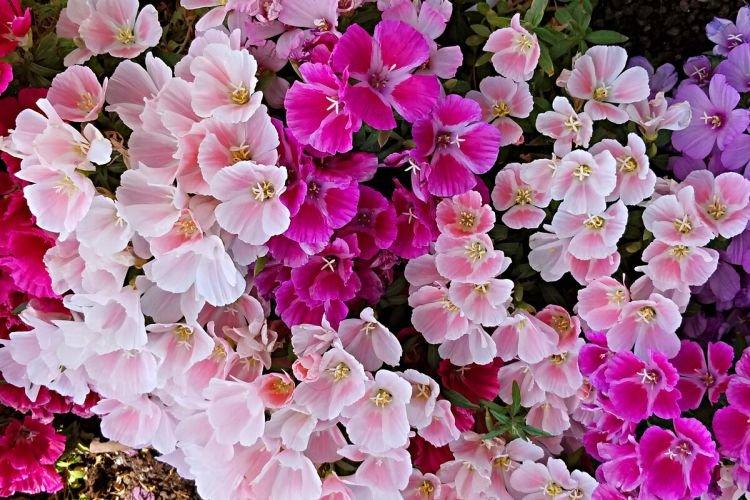
4. Aquilegia
Herbaceous perennial is very unpretentious to external conditions, and its flowers are rapidly replacing each other. Aquilegia has a developed root system, due to which it is hardy, but almost unsuitable for transplanting.
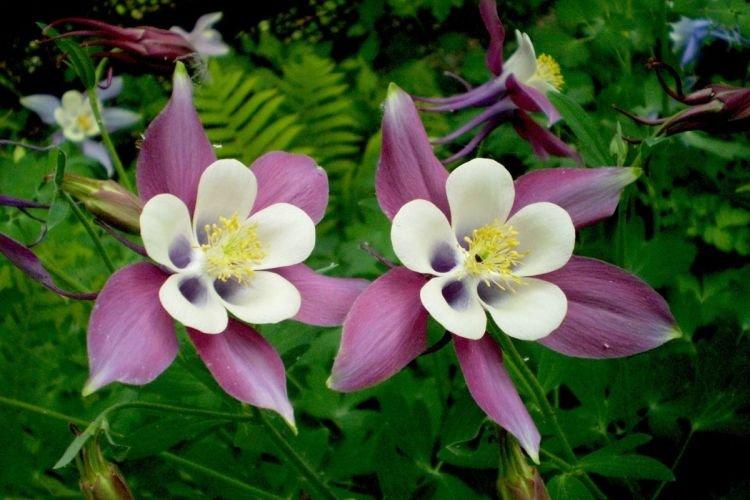
5. Digitalis
An unusual plantain perennial blooms with long and voluminous brushes. But the bizarre shape of bells of pink, orange or yellow shades is especially interesting.
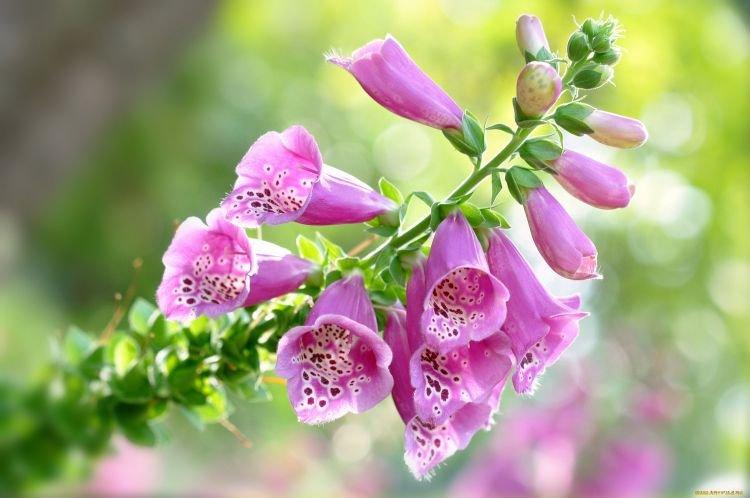
6. Scylla
The bell-shaped scilla rarely grows more than half a meter, but it is densely covered with blue and purple brushes. Bells are rather small, up to 2 cm, with beautifully bent petals.
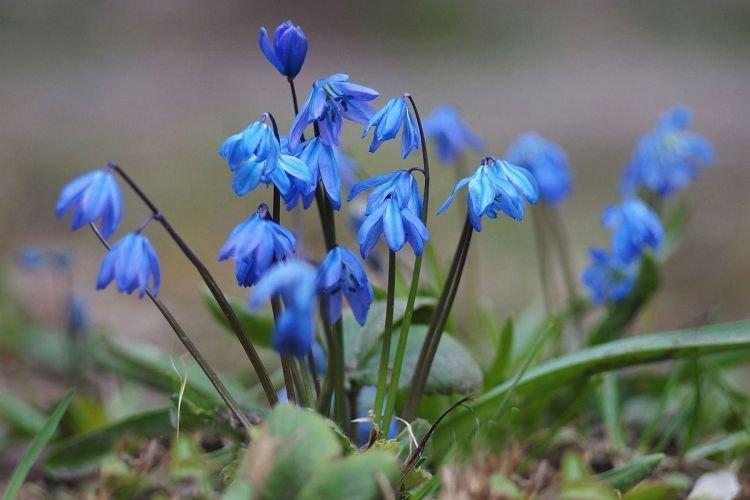
7. Brugmansia
Amazing brugmansia grows so quickly that in just a day its large flower can increase by a couple of centimeters. On an adult shrub, huge bells grow up to 50 cm.
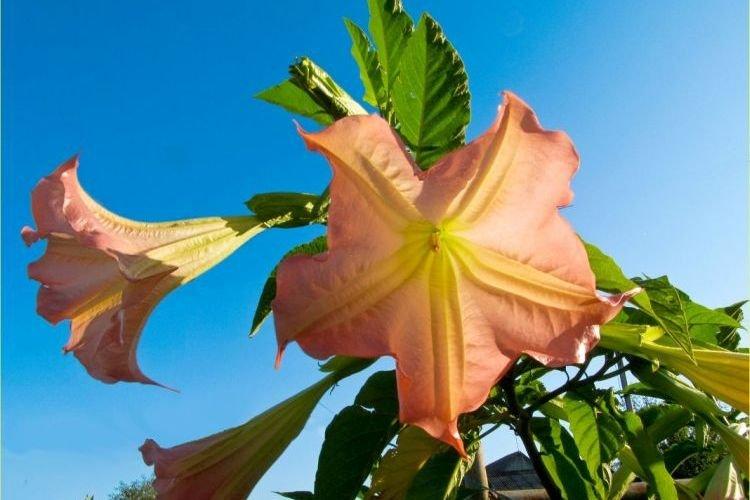
8. Ostrovsky
Large white bells bloom in June and are highly prized by landscape designers. Ostrovsky loves moderate humidity, neutral soil and plenty of sun.
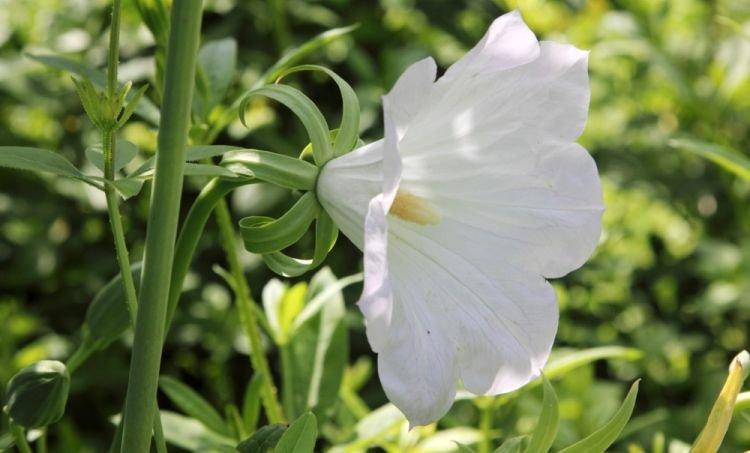
9. Campanula
Another unpretentious herbaceous flower on this list is interesting for its colors. One bell is painted in several shades at once - for example, with a white center and a blue crown.
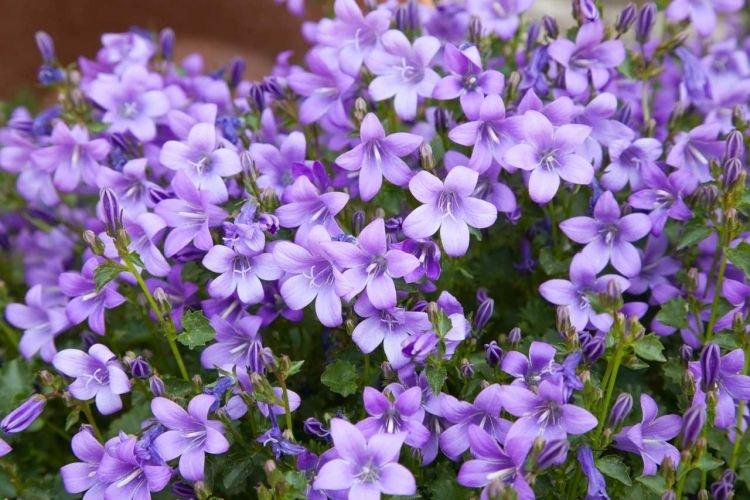
10. Snowdrop
In fact, the usual snowdrops are called galanthus. They are ubiquitous and are especially common on lawns, forests and along rivers.
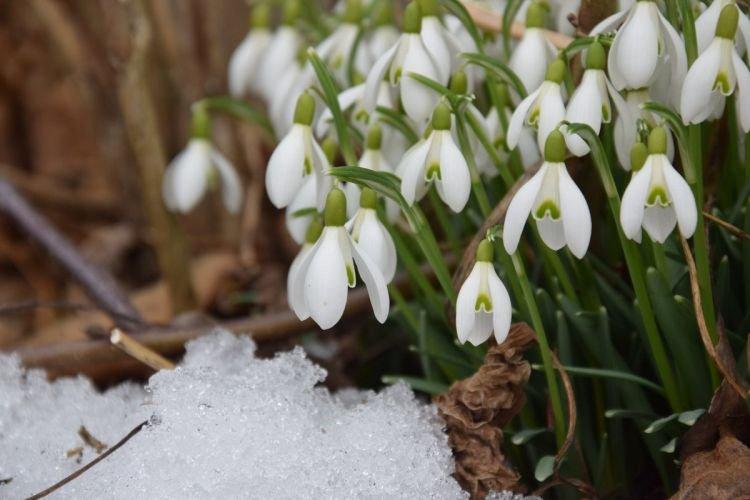
11. Grouse
A dozen varieties of bright multi-colored hazel grouse are very much appreciated by gardeners and landscape designers. Flowers are interestingly grouped in 5 pieces or more.
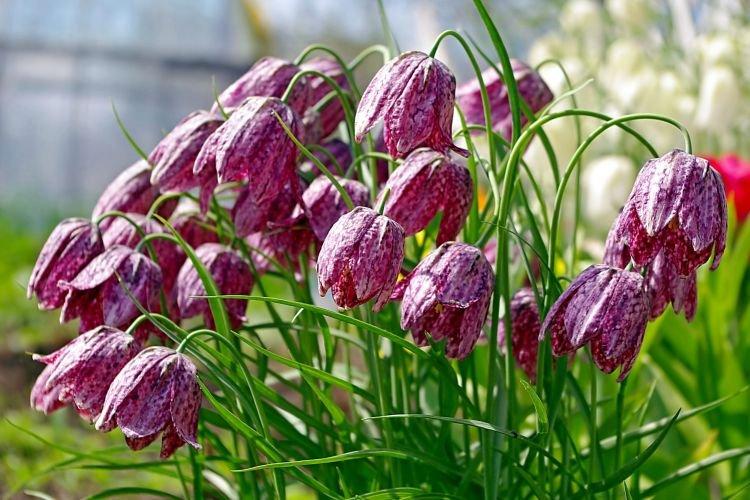
12. Gloxinia
Gloxinia's short shoots are densely covered with beautiful velvety leaves, which are decorative in themselves. Bells also seem slightly velvety and can be monochromatic, two-colored, or speckled.
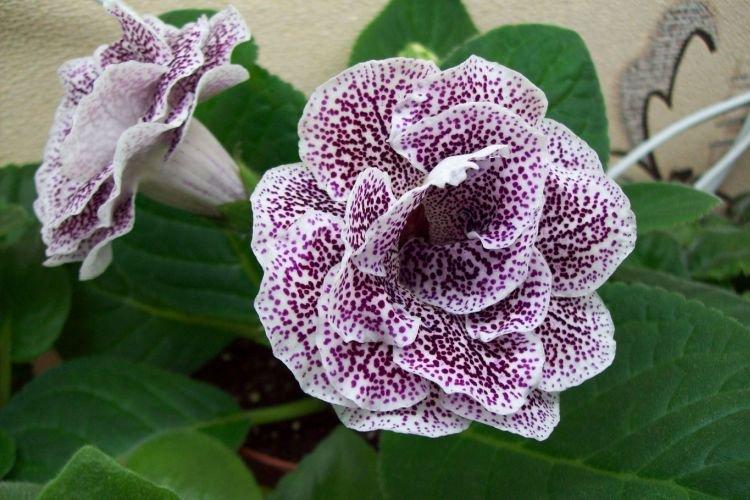
13. Hyacintoides
The complex name hides a beautiful and delicate bulbous perennial from early flowering. It is also called the Spanish Prolesky or wild hyacinth.
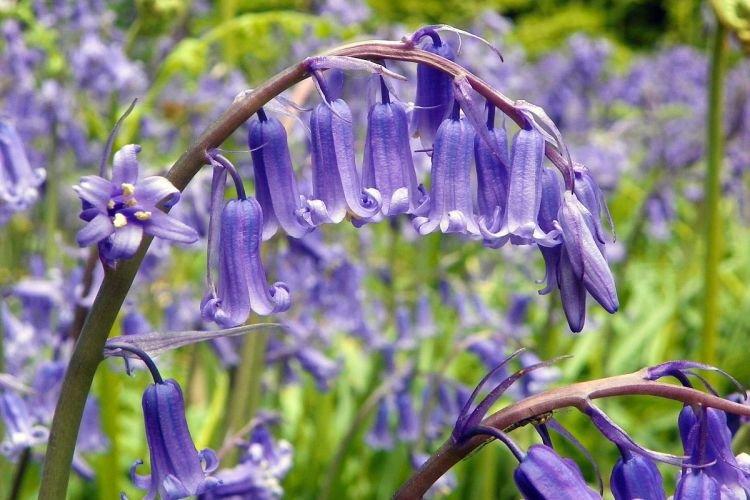
14. Symphiandra
It is a rocky plant that prefers the same rocky terrain, which is why it is rarely found in gardens. Symphiandra is not too leafy, but in season it is covered with a scattering of large bells.
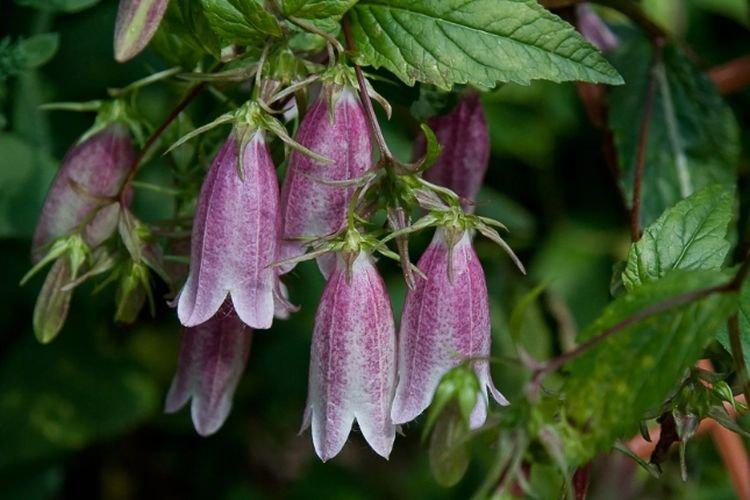
15. Abutilon
Abutilone flowers are more reminiscent of Chinese lanterns than bells. But this tropical plant unconditionally looks very elegant and interesting.
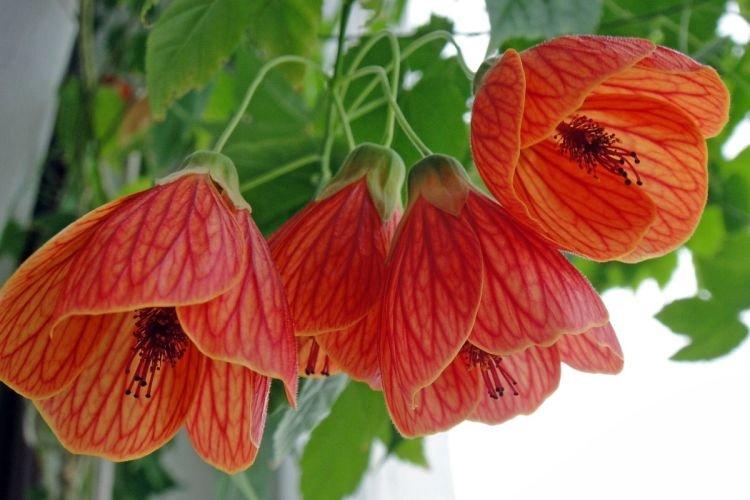
16. Gentian
There are dwarf varieties up to 20 cm, and there are real giants up to one and a half meters. Basically, gentian bells are bright blue or light blue, but white and yellow are found.
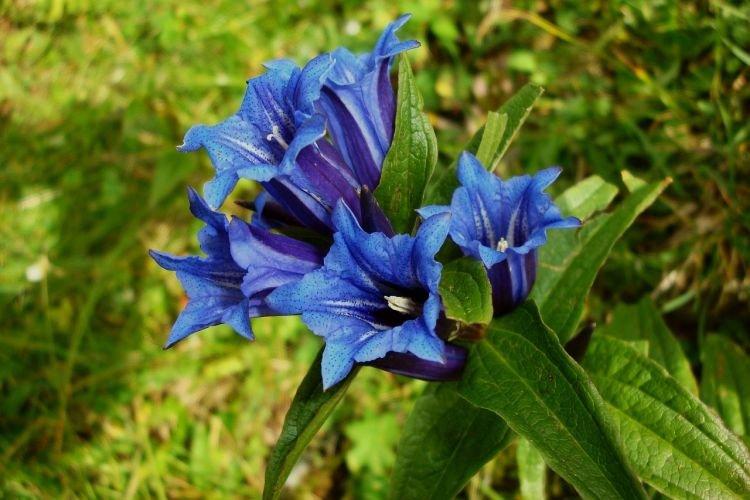
17. Cyanantus
Another tropical visitor on this list is very tiny, up to 10 cm and with a weak taproot. Tiny pale blue flowers bloom by mid-summer.
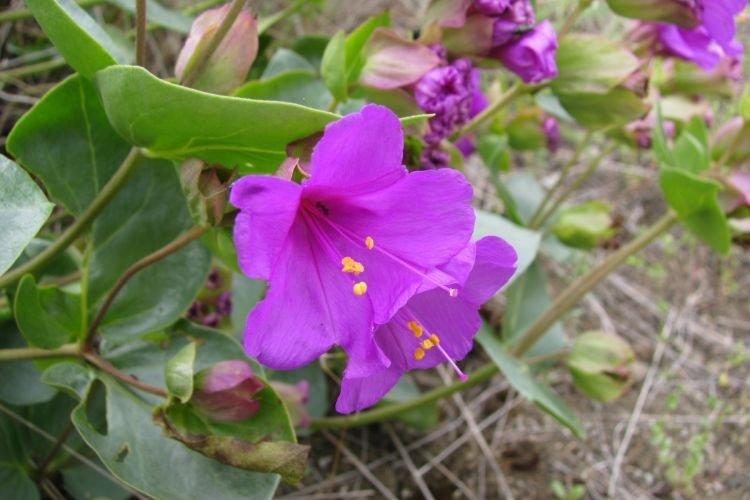
18. Amorphophallus
It would be unfair not to mention a huge exotic flower on this list that truly resembles a giant inverted bell. As soon as they do not call it in different regions - from a cadaveric flower to a snake palm.
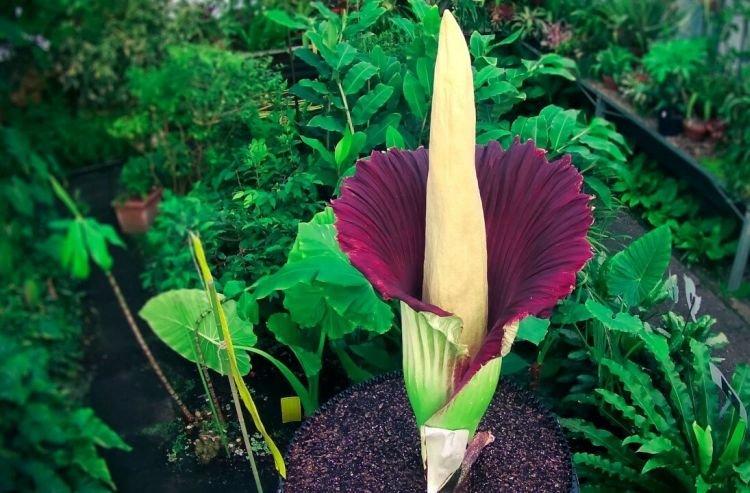
19. Datura
The same dope herb is considered very dangerous and toxic. But even this does not negate the fact that she has very large and beautiful white bells with an expressive aroma.
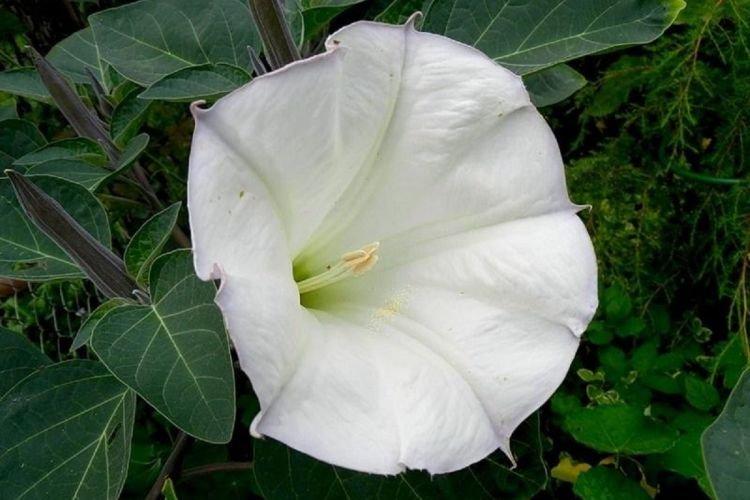
20. Platicodon
The people call the plant with wide large bells a shirokokolokolchik. Flowers open up to 8 cm and are most often painted purple, blue or white.
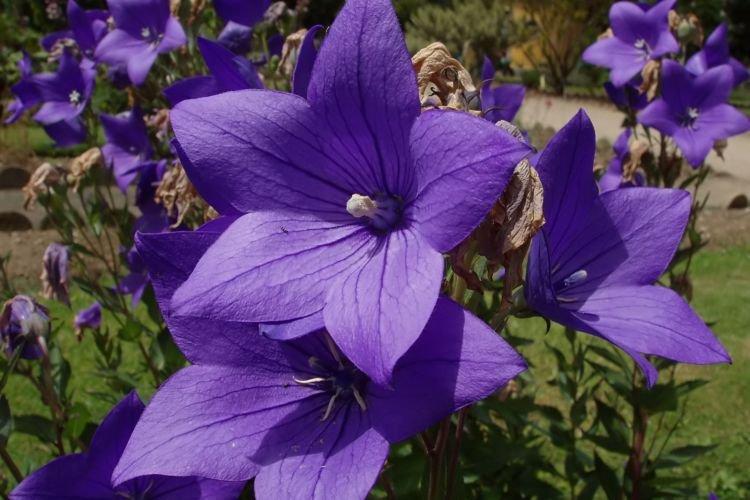
21. Coleria
The most interesting are the petals of koleriya bells, painted in several colors at once with dots, spots and transitions. It is very undemanding to care for and is ideal for beginner growers.
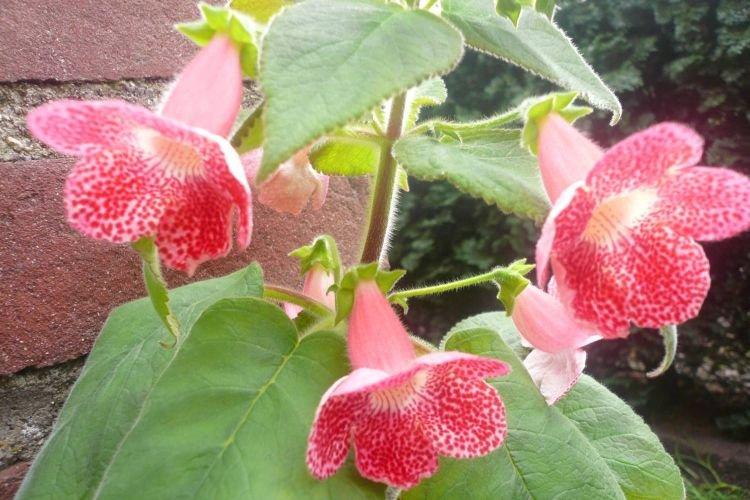
22. Kobeya
The heat-loving kobei is not widespread in our latitudes, because it needs a tropical climate. But gardeners were able to adapt creeping varieties with long vines and fragrant musk bells.
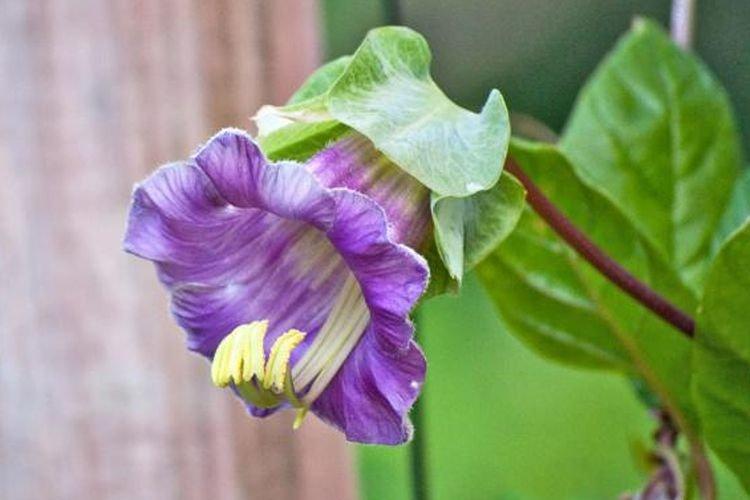
23. Smithiante
This flower stands out against the background of blue and white bells with an unusual pink color. Even the shoots have a barely noticeable burgundy hue, and the leaves are densely pubescent.
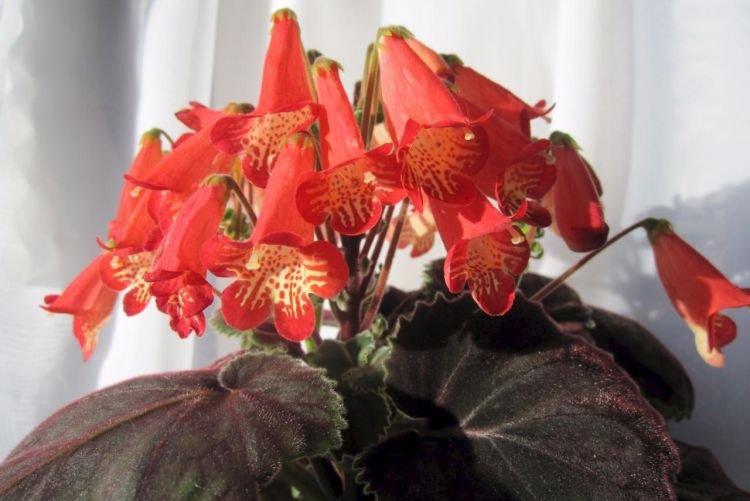
24. Streptocarpus
The amazing island flower resembles a double bell. It is a rosette plant with a short stem and long leaves, 2-3 flowers per peduncle.
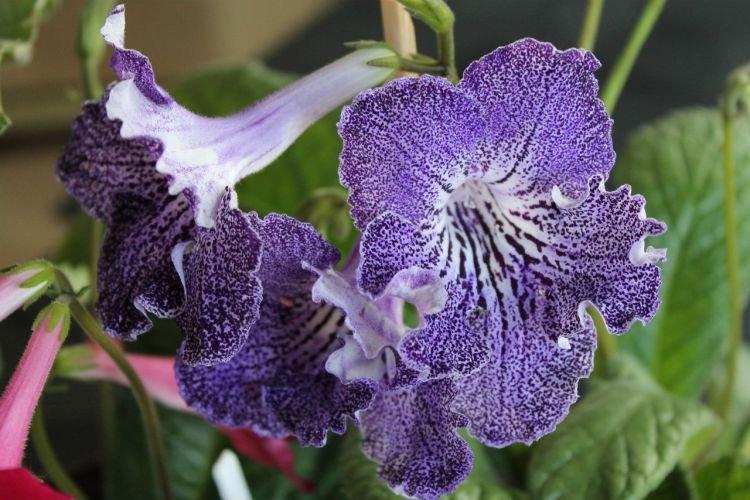
25. Codonopsis
The pale solitary bells seem very fragile because they are always very faded and drooping. In fact, it is a hardy and unpretentious plant that blooms almost all summer.
